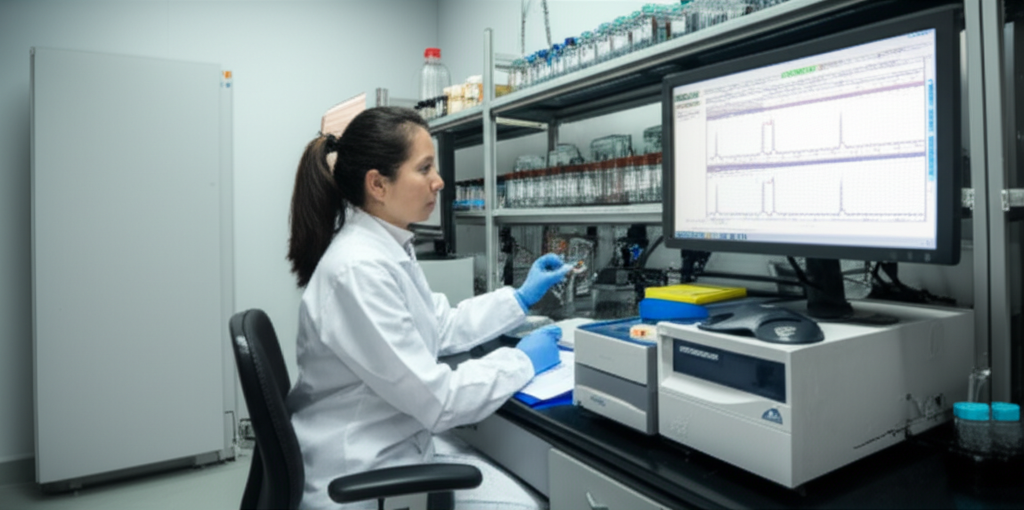Polyphenylene Sulfide (PPS) resin is a high-performance polymer renowned for its exceptional chemical resistance, thermal stability, and mechanical properties, making it indispensable in aerospace, electronics, automotive, and industrial applications. Traditional synthesis methods often face significant challenges, such as poor particle formation, low yield, high energy usage, and reactor corrosion due to unstable reaction conditions and suboptimal material handling. Conventional approaches typically involve one-time dosing of p-dichlorobenzene (p-DCB) at lower temperatures, which can cause vaporization losses, pressure fluctuations, and material imbalance, leading to inconsistent molecular weights and frequent reaction failures. These inefficiencies not only escalate production costs but also limit the resin's suitability for high-demand sectors like electronic encapsulation, where purity and specific properties are critical.
The novel synthesis process overcomes these limitations by introducing a multi-step, controlled methodology using sodium hydrosulfide with specific water content, sodium hydroxide, p-DCB, and N-methyl-2-pyrrolidone (NMP) as the primary solvent. Under an inert nitrogen atmosphere, sodium hydrosulfide and sodium hydroxide are separately dissolved in deoxygenated water into 45–60% concentrated solutions. These mixtures are heated to 80–100°C, combined at a key temperature window of 120–130°C, and held for 18–30 minutes to form sodium sulfide. NMP is then added at a precise molar ratio of Na2S to NMP (1.0:3.8–5.8), followed by rapid dehydration at up to 6°C/min to 200–204°C over 300–360 minutes. This step ensures thorough moisture removal without destabilizing the reactants, minimizing the risk of vapor escape and preserving stoichiometric balance. After dehydration, p-DCB is incrementally incorporated, establishing a controlled molar ratio in the polymerization system (Na2S:p-DCB:water:NMP at 1.0:0.99–1.18:0.5–0.9:3.8–4.8), while nitrogen purging eliminates air contaminants. The reaction proceeds through low-temperature polymerization (200–210°C, 2–4 kg/cm² pressure for 90–135 minutes) and gradual transition to high-temperature polymerization (260–270°C, 8–9 kg/cm² pressure for 150–180 minutes), where temperature ramps are finely tuned at 0.3–0.6°C/min to manage exothermic heat and viscosity buildup effectively.
A pivotal enhancement comes with the staged introduction of acetate compounds—such as sodium acetate, lithium acetate, or calcium acetate—along with additional NMP and water, via a high-pressure pump after high-temperature polymerization. This addition adjusts the system to a refined ratio (Na2S:p-DCB:water:NMP:MAC at 1.0:0.99–1.18:1.5–1.9:4.8–5.8:0.8–1.1), followed by a stabilization phase at 260–270°C and 10–24 kg/cm² pressure for 30–60 minutes. This stage significantly stabilizes pH levels, curbs unwanted side reactions, and promotes uniform growth of PPS particles into 500–1000 μm spheres, enhancing handling and washability. Crucially, the acetates act as pore-forming agents, reducing resin density and improving solubility of impurities like sodium chloride, which simplifies post-processing. The system is then cooled swiftly to 160–180°C, filtered hot to isolate the crude resin, and subjected to iterative purification steps: the filter cake is washed 4–6 times with fresh NMP at 160–180°C for 45–60 minutes per cycle, then repeatedly rinsed with deionized water 6–8 times under nitrogen protection at 100°C. Final drying at 130–150°C yields PPS resin with moisture and solvent residues meticulously controlled at 0.3–0.6% wt.
This refined process delivers multifaceted benefits, starting with exceptional particle formation and improved yield, resulting in resin granules that are more uniform and less prone to fines, unlike prior methods that yielded powdery or irregular particles requiring extended washing. Experiments consistently showed particle sizes averaging 600–900 μm, compared to sub-100 μm fines in standard processes, slashing purification time by over 3 hours and boosting material recovery. Additionally, the approach enhances energy efficiency through optimized temperature control and reduced heat loss, cutting specific energy input by roughly 15%. A major advantage is lowered reactor corrosion, achieved by balancing sodium hydroxide and sodium hydrosulfide to maintain moderate pH in dehydration and polymerization phases, thereby extending equipment lifespan. The strategic use of acetrates also bolsters molecular weight stability, with resulting resins achieving a consistent molecular weight distribution and melt flow rates suited for applications such as electronic components. Post-synthesis analyses confirm minimal chloride content and high purity, broadening utility in sectors demanding stringent material standards.

Demonstrating its efficacy, the process consistently produced resins with a weight-average molecular weight exceeding 20,000 in multiple trials, a substantial improvement over traditional methods yielding below 15,000. Productivity metrics, including solvent recovery rates, soared past 90% due to fewer soluble by-products—a direct outcome of precise reagent purity and reduced side reactions. For instance, in comparative tests, the acetate-assisted phase facilitated faster cooling and easier resin detachment from reactor surfaces, preventing fouling and enabling repeat runs without cleaning downtime. Economically, the synthesis reduces reliance on costly agents like prior reductants, cutting production expenses by an estimated 10–20%. Looking ahead, this innovation could accelerate adoption in industries like electric vehicle battery casings and medical devices, where superior insulation and resilience are paramount. Overall, the method addresses long-standing inefficiencies in PPS resin manufacturing, positioning it as a sustainable, high-yield solution for next-generation polymer materials.
Manufacturing Facilities






Professional Export Experience
to Global Customers

1. 20 years of R&D, manufacturing and sales experience, serving customers in 60 countries and regions around the world;
2. Own R&D laboratory, pilot platform and large-scale production workshop, which can meet the audit requirements of global customers;
3. We can satisfy customers' perfect transition from small scale lab requirements (gram level) to commercialization requirements (hundred tons level).
A: We don't have Minimum Order Quantity, exact quantity should be provided before quotation for us to calculate the exact cost.
A: We don't provide free samples due to lots of request and expensive international courier's cost, we can deduct the sample charge after commercial order placed.
A: Our payment terms: Small or sample order: T/T IN ADVANCE. Commercial order: First order should be by T/T IN ADVANCE or L/C at sight, and following orders T/T 30~90days is acceptable subject to approval of credit application.